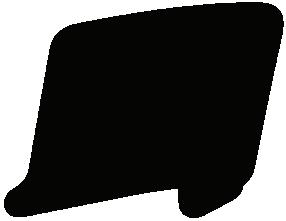
1 minute read
Walkerville, Ontario
In 1855, Hiram Walker, disenchanted with the temperance movement taking root in Detroit, went across the river to a British colony, where he created a whole new type of spirit — and a new town.
A Massachusetts native, Walker had come to Detroit in the 1830s. He started a grocery business and learned to distill — vinegar at first and then whiskey. But little by little, restrictions on making and selling alcoholic beverages tightened in Michigan, culminating in full prohibition in 1855.
Walker saw the writing on the wall and bought 468 acres — land that, legend had it, was settled by Chief Pontiac and the Ottawa Indians — near the village of Windsor in what was then British North America.
Walker built a flour mill and distillery in 1858 and, soon after, started building homes for workers. The unincorporated village became known as Walkerville, which became a town in 1890. It was ahead of its time, with paved roads, streetlights and fire and police.
Walker’s main product was Club Whisky, a barrelaged spirit made with corn, rye and malt. In 1889, the
U.S. Congress — at the behest of American distillers — passed a law mandating the nation of origin be listed on imported spirits. Undaunted, Walker renamed his product Canadian Club Whisky, still one of the most well-known distilled spirits sold in America.
Canadian Club was an exceedingly popular (if not legal) import during Prohibition, when it was estimated that three-fourths of smuggled alcohol from Canada came across the Detroit River from Windsor. In fact, Chicago gangster Al Capone was said to have been one of Walker’s biggest customers.
In 1935, Walkerville was absorbed into Windsor, by then a city. Today, it remains a heritage precinct in Windsor, home to a bevy of historic buildings, as well as a working distillery, still the largest in North America and open for tours.
Hiram Walker died in 1899 and is commemorated as a person of Canadian National Historic Significance. In 2022, a statue of him was dedicated in a Windsor park bearing his name.
— Vince Guerrieri














